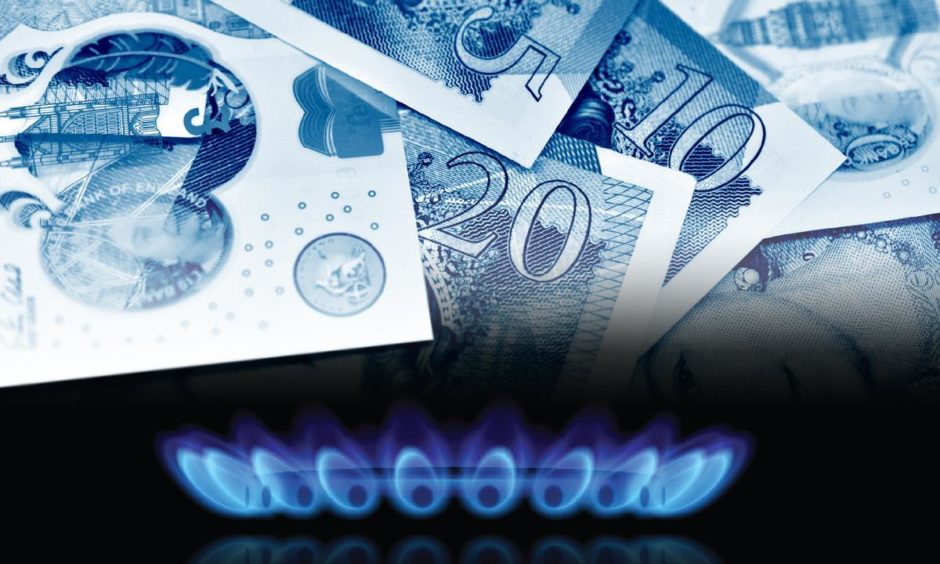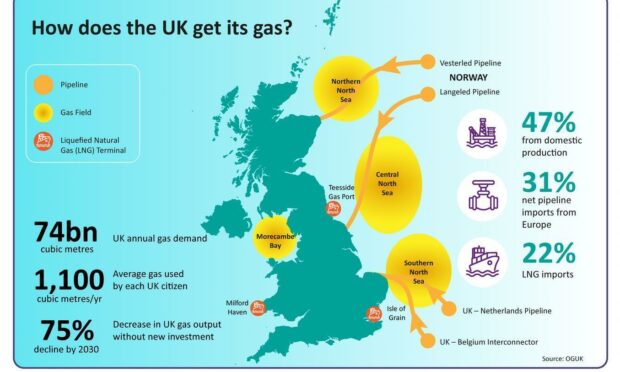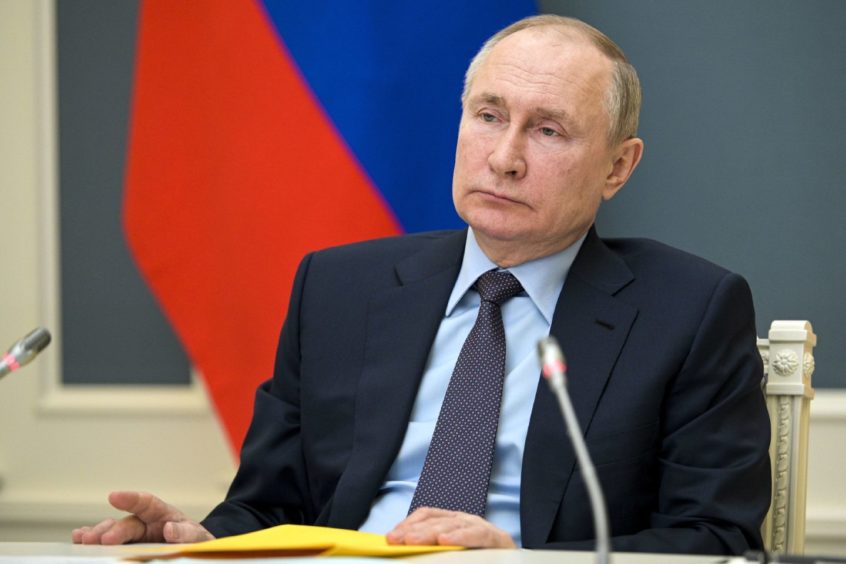UK households could face price surges as high as 35% in their gas bills should Russia go-ahead and invade Ukraine, experts have warned.
An invasion would be disastrous for the people of Ukraine, but the economic impacts could go much further directly hitting countries like Germany, which gets 40% of its gas from Russia.
It could also indirectly affect many more, including the UK, by triggering price surges.
That’s the warning from trade body Oil and Gas UK (OGUK).
While leading Inverness based economist Tony Mackay believes any invasion would have a “big impact” on prices with them rising by as much as 35%.
Consumers face hundreds of pounds rise
Already gas prices have increased rapidly, and consumers are to face further price hikes from the beginning of April.

Next month energy regulator Ofgem is expected to raise the price cap on average bills from £1277 to £2,000 – with another £400 rise predicted in October.
Price rises are already beginning to affect businesses and households, with some already reporting significant hikes.
The pressures add to inflation fears, which recently hit a 30 year high. It is thought households in the north and north-east of Scotland are facing a worse cost of living crisis due to “significantly lower” growth in average weekly earnings due to the decline in the North Sea oil and gas industry and Highlands tourism being hit by Covid-19.
How could prices further increase?
While that news is worrying enough the threat of Vladimir Putin ordering an invasion into Ukraine could bring its own problems for the UK.
While the UK only gets 3% of its gas from Russia, the UK gas price would be pushed up if Russia restricted supply.
Germany gets up to 40% of its gas from Russia while Finland and Sweden import even more.
Norway – the second-largest gas supplier to Europe – is already exporting as much gas as it can and is unable to stand in for Russian supplies, the country’s prime minister has warned.
Concerns are growing Russia might weaponise its gas supplies in the event of a conflict in Ukraine.
A spokesman for Prime Minister Boris Johnson has already said that Russia would make a “strategic mistake” if it took any “destabilising action” in Ukraine indication the UK and US could place sanctions on Russia.
If sanctions on Russia hit gas supplies it could also hurt European gas markets, as the region gets around 35% of its gas from the country.
“Significant” knock-on to prices
Mr Mackay said: “It is difficult to predict the increase in the UK. Only about 5% of our gas is imported from Russia (as LNG) at the present time.
“We produce about 50% of our current gas consumption from fields in the UK sector of the North Sea.
“However, that share has fallen hugely since 2000 because of the closure of many gas fields in the North Sea.
“We currently import about 35% from Norway by pipelines and about 15% LNG gas from other countries, notably Qatar and USA.
“Problems in the Ukraine will not affect gas imports from these countries.
“However, I believe that there would be significant knock-on impacts on UK gas prices. If EU gas prices rise by up to 50% that would inevitably increase prices in Norway, Qatar and other countries.
“The timing of the increases would depend on the length of existing import contracts, of course.
“I doubt if there would be a 50% rise in UK gas prices because of our domestic production but it could certainly be in the 30%-35% range.”
Gas prices could reach record level
Analysts at investment bank Goldman Sachs are warning any sanctions placed on gas could lead to gas prices reaching “even higher levels” than the record set in the middle of December.
Goldman said: “The impact of natural gas prices on the economy is broader than most people realise.
“This is not only because it is the most important commodity for winter heating or because large industrial sectors, such as chemicals, glass metals smelting and cement rely heavily on gas for manufacturing.
“But, importantly, natural gas is often the marginal fuel for power generation, which means it is one of the key drivers of electricity prices, significantly impacting the broader economy.”
Aberdeen Central MSP Kevin Stewart wants to see more done by the government to help support families struggling with the price hikes.
He said: “Gas supplies in Europe are already extremely tight so any further impact could clearly have huge implications for households in Aberdeen and across the country.
“Energy policy is reserved to Westminster and while we are doing what we can in Scotland to boost household income, the reality is the Tory government is so embroiled in various scandals, it’s not focussed on the cost of living crisis,
“We need an emergency package to support families already being hammered by soaring energy prices, who are about to be hit again when the price cap is lifted and the ongoing Ukraine crisis is likely to add to these woes.”
Where does UK gas come from?
The UK consumes 74 billion cubic metres of gas a year, or about 1,100 cubic metres per person, making it one of Europe’s heaviest consumers per capita.
About half is imported, mostly from Norway which supplies a third of UK gas.
Russia supplied the UK with about 2.5 billion cubic metres of gas (3.4%) in 2020, with the remainder from global LNG markets.
The other half comes from the UK’s own offshore industry which has developed extensive gas fields in the North Sea, the Atlantic around Shetland and in the Irish Sea.
Need to maintain offshore gas supplies
OGUK research has found that many UK gas fields are becoming depleted, meaning new ones must be developed to replace them.
If that does not happen then the UK will be even more reliant on imports than now.
OGUK said the potential shortages have “reinforced the need to maintain the UK’s present and future offshore gas supplies”.
Its research suggests gas production from the UK’s continental shelf will decline 75% by 2030 unless new fields are opened – leaving the UK increasingly vulnerable to global events that cause shortages and price shocks.
Geological surveys have shown that many such fields remain, and are estimated to contain oil and gas equivalent to 10-20 billion barrels of oil – enough to sustain production for 10-20 years.
OGUK energy policy manager Will Webster said:”If the Russians reduce deliveries of gas to Europe, then it has to come from somewhere else, most likely as shipments of liquefied natural gas.
“That will increase competition for supplies, driving up prices and consumer bills even more.
“Conversely, any additional gas we produce ourselves will help alleviate this process.
“In the longer term, if UK gas production is allowed to fall as predicted, then our energy supplies will become ever more vulnerable to global events over which we have no control – as we now see happening with Russia’s threatened invasion of Ukraine.”




